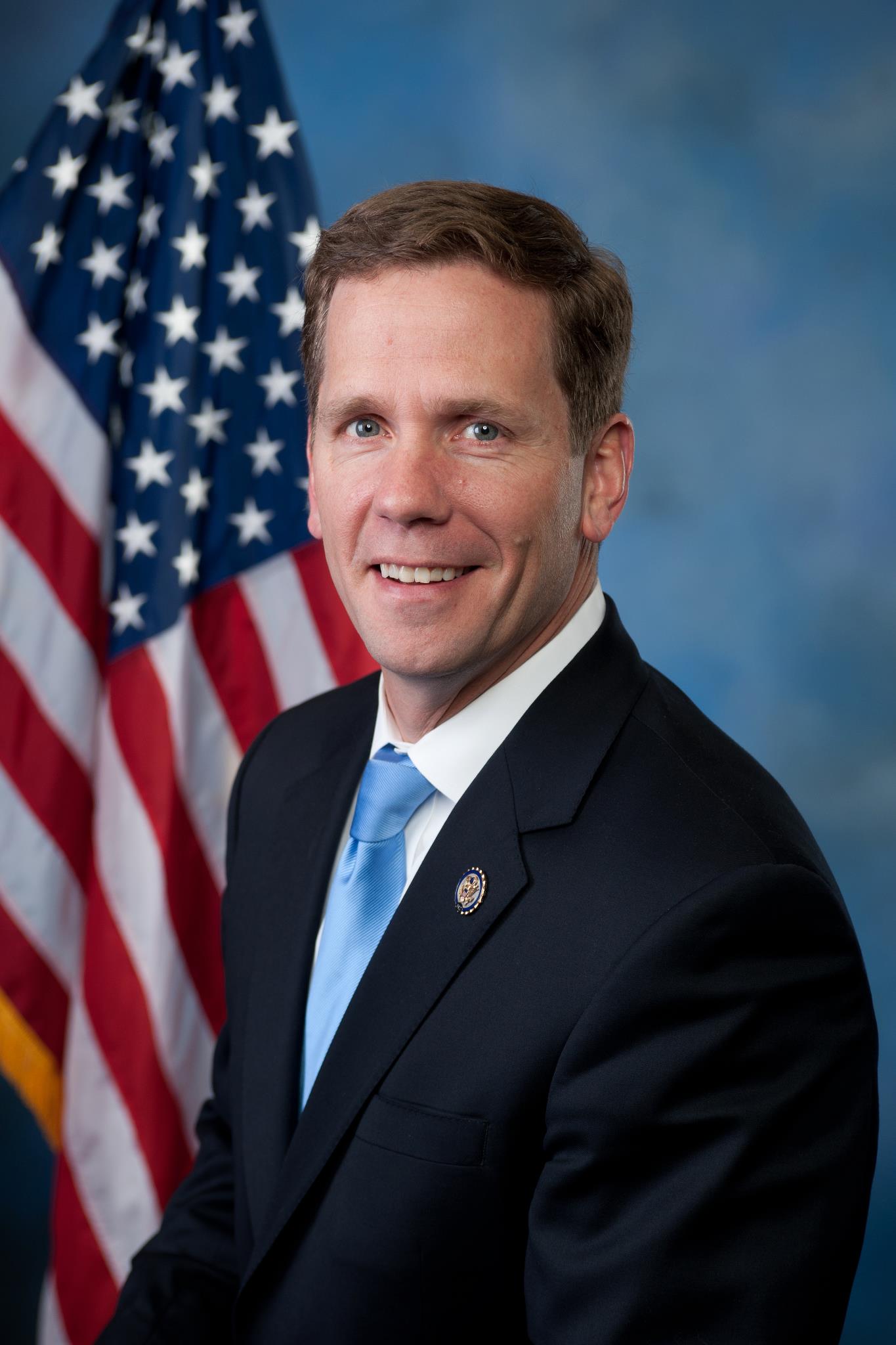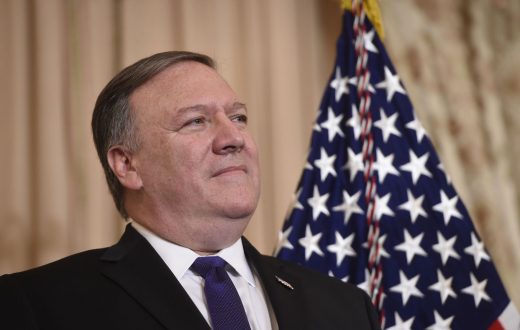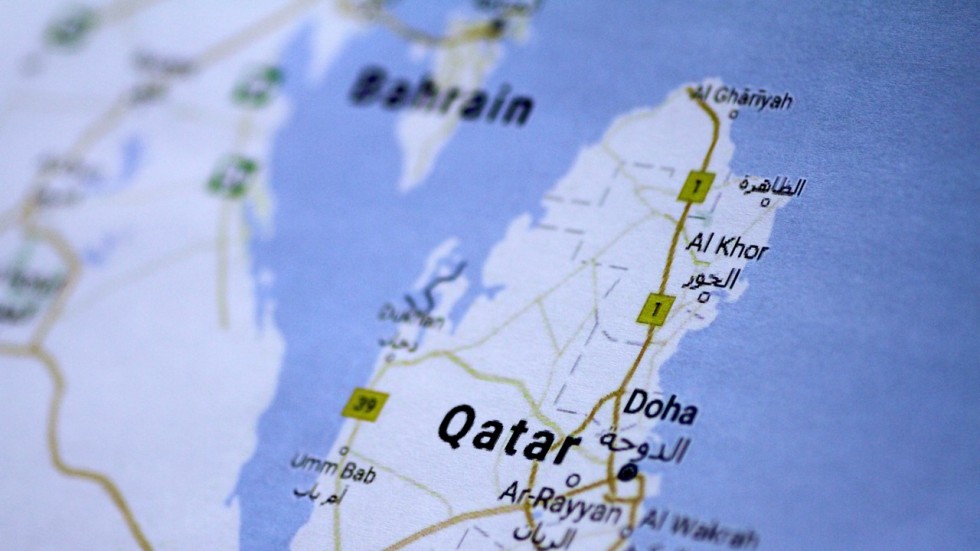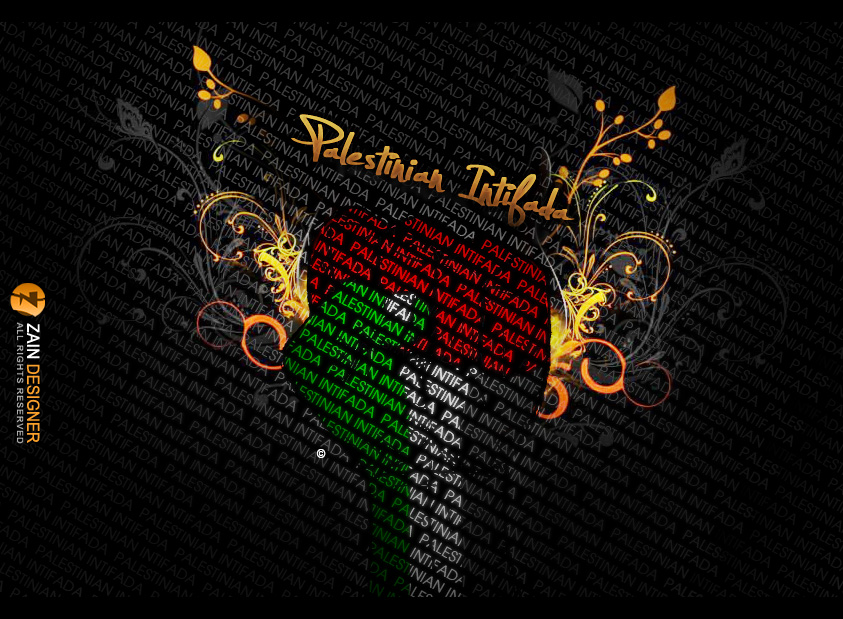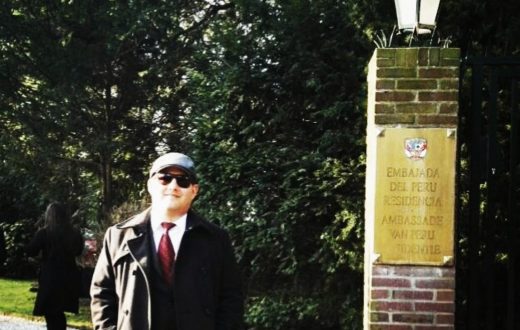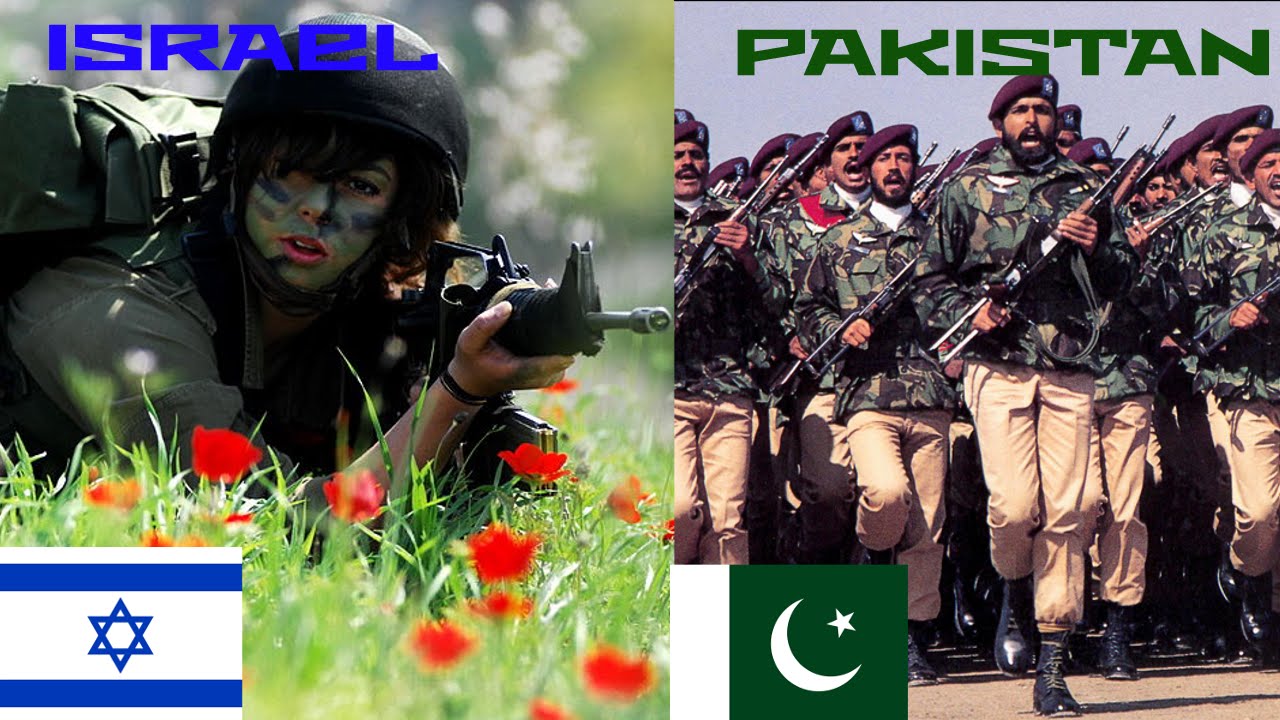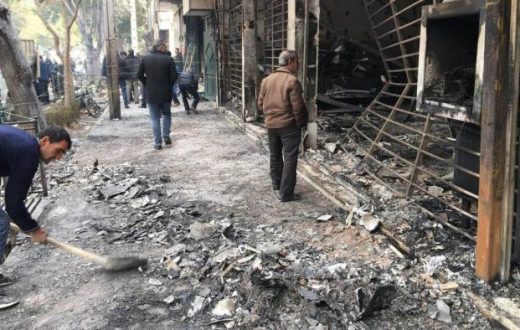Interview with Congressman Bob Dold (Republican from Illinois) by YoungDiplomats’ Foreign Reporter Jason Roth.
1) Iran is a known supporter financially and rhetorically of Hamas, Hezbollah, and Islamic Jihad. Yet, the United States under Obama have signed a nuclear agreement with them and agreed to pay $1.7 billion to Iran, which essentially pays for terror against the US’s allies in the region. Do you feel that this deal compromises the ability of the US to influence the situation in the Middle East? Why? (Was the purpose of the deal to gain more traction in the ME? Did America actually lose influence?)
“I think that this deal, Jason, honestly, is awful. Awful for the United States, awful for it’s allies. Really, and again this was not signed. This is a political agreement, this is not a document, not a treaty. What we have done with this agreement, not only have we released over a hundred billion dollars to go to the greatest state sponsor of terror in the world today, but we have also given them a sense of legitimacy, and in theory we have opened up the market to Iran. We have emboldened them to put pressure on the United States, to be able to do things that otherwise they claim that they will walk away from this supposed nuclear agreement. And so this has been very bad I would argue.
And certainly we know that those dollars are going to be funneled into places like Hezbollah and Hamas and to Assad in Syria.
I think that if this deal as it sits today is again designed, what the president wants to do is try to prevent Iran from getting a nuclear weapon, and I think that if you listen to folks like Bob Hemendez and others this deal all but ensures that they get a nuclear weapon. For administration after administration to say that our goal was to ensure that Iran does not ever have the ability to acquire nuclear weapons, this one is very troubling because we don’t have anywhere, anytime inspections, and frankly we have seen Iran already break its agreement with the United Nations, testing of rockets, not once, not twice, three times, the most recent one the side of the rockets basically saying Death to Israel.
This is about our one true ally, yes, this is about what is happening in Israel and around the Middle East. It is also about recognizes that the United States is a target as well. And so, we see the influence and the shifting of influence there as Iran becomes emboldened and how they bully there neighbors there, and how the neighbors will respond to this as well. The world is watching. They are watching what happens in the United States. And the lack of leadership from the United States, someone will rush to fill that void. ”
2) Do you feel that recently the United States influence in the Middle East has been decreasing? If so, why do you feel so?
“I don’t know that it is necessarily losing influence. I think that the United States lack of leadership has really had an impact and that has an effect on what people will do, and what nations will do.”
Bob Dold declared that he was speaking on its own name and not on the name of his political party concerning this matter.
“If we take a look for instance with the President’s statement about a red line. A red line in Syria that frankly the Syrians trampled over it, not once, not twice, but well over a dozen times. The world is watching, what will be the response when the President of the United States and this administration says, ‘this is the red line’ and then it is ignored. And there is no response from the United States. So our allies are watching that as well as our enemies and so our allies will take a look at that and say ‘wow the United States, I’m not so sure that I am willing to stick my neck out, because I don’t know if the United States will be there.’ Our enemies are in essence looking at that and saying, ‘wow we can push further.’ So it creates a far more dangerous world, is what I would say, when the United States does not step up to lead and follow through on its commitments.”
4) The US has abstained from helping its allies recently in the M.E. (Saleh in Yemen, el-Sisi in Egypt, etc.) The lack of support for the Syrian Moderate Rebels has created a resentment in the region and caused a feeling that the US would not be able to assure their security. GCC countries led by Saudi Arabia (a strong ally) have recently stated that they don’t feel the US could assure their security if Iran gets a nuclear arsenal. How do you respond to this?
“I would respond to that by saying that is certainly not the belief of everyone in the United States but certainly we see the actions of the administration in taking a step back from a leadership role and I would say that is very real. My comments before, as we look at what we are talking about. What do those nations do? Do they fear what Iran would do, once they do, if they ever get a hold of a nuclear weapon? I think that it would have a huge ripple effect in the region and again, you know that a nuclear power has to be treated differently than a non-nuclear power. And so, I think it does have certain ramifications. I do think we have seen Iran not keeps its word with regard to the Nuclear Agreement thus far, they had said that they had not had any nuclear programs that would be for military purposes. The IAEA has refuted that in the short time that the agreement has been not inked because there is no ink on this agreement, but achieved. So, this is a very real problem.”
5) Do you feel that Trump or Clinton’s Foreign Policy could reverse the trend of countries in the Middle East looking toward Russia to assure their security? How so?
“I certainly hope that any commander and chief of the US who would be the leader of the free world, would recognize that our one true ally in the Middle East, the State of Israel, is one that the world must know that we would stand shoulder to shoulder unequivocally to ensure that they have quantitative and qualitative military edge. That we will hopefully reverse any trend or any doubt that people have that the US will be there to help supply weapons or other goods and services to our ally to allow them to be able to defend themselves. And that it is critical that for our allies around the globe. So I sincerely hope that they have an ability to reverse any potential misgivings that countries have about the United States today.
We have seen Russia become emboldened. US took out missile defenses from Poland. Which I believe was a huge mistake. We tried to reset relations with Russia. We have seen an aggressive stance with Russia going into Ukraine and Crimerea. And so we have also see them in terms of helping Syria and having planes actually attack folks that have been helpful to the United States in the past, claiming that they were going after ISIS and we realized that was not the case, they were going after folks that were anti- Assad. This is obviously what I would consider a big problem. And again, we are seeing Russia and Putin flex their muscles and take a far more aggressive stance than we would like and it requires the United States leadership to assure the world that we will be there.”
6) Should the US support the possible creation of a Kurdish State in Northern Syria and Iraq? The Kurds have been one the strongest groups fighting the Islamic State which helps the US.
“The Kurds have certainly been some of the strongest fighters in this process. I don’t know, I would be hesitant to say what US policy would be in terms of this, to move forward with creating a state for the Kurds. I don’t want to go down a path that I don’t know as much about, in terms of what US policy would be in terms of how things get rearranged over in the region.”
7) How will the US be able to strengthen its influence in the Middle East?
“I think it will take some time. I think that the United States has an obligation to step up and be the leader of the free world. To make sure that they know and again I want to make sure that our Commander and Chief is successful with regard to foreign policy because if our Commander and Chief is successful that means our allies and the United States will be successful and so it is about making sure we are leading and making sure that we again are unequivocal in our support for Israel. That the world knows that we will be shoulder to shoulder with our one true ally. I think some believe that that is in question today. I think that even the Israelis right now would say that this is probably the weakest, one of the weakest times in memory, recent memory. When we actually have the Israelis saying that they are practicing Mushroom Diplomacy. Mark Regev and others are saying that Mushroom Diplomacy in a sense that they are talking to neighbors in the dark. Meaning that, being Saudi Arabia, Jordan or others, so they can’t be overt about, but they are all I believe united against an Iran. I certainly don’t like what is happening with ISIS.
I think we’ve got, we have to in the US, step up, I think a memorandum of understanding would certainly be positive but we have to make sure that we follow through on commitments that we have. I think that will be a first step. We have to ensure that we are not emboldening Iran. We have seen that most recently, I think when Iran, when the House of Representatives passed an amendment to the Visa Waiver Program, that would prevent those with a visa waiver passport to come into the United States if they travelled to Iran, or to Syria, Iraq and those places. Iran said they thought that was a sanction and would potentially walk away from the deal. Secretary Kerry said, ‘well perhaps we might be able to waiver on from this.’ This is in complete opposition to the bi-partisan effort and law that passed in the United States Congress not 10 days before. So this is the type of stuff that we have got to avoid going forward to build that confidence amongst our allies in the region. ”
8) Final question: It is evident that there has been tension between the White House and Israel under the tenure of President Obama. What do you feel can be done to ease the tension, assure and strengthen the alliance with America’s greatest allies in the M.E.(Israel and Saudi Arabia)?
“I think that it is absolutely vital that we, certainly if we talk about Israel, that we ensure that this not a partisan issue. I think Israel loses if this becomes a partisan issue. And so, I think that one of the things that can be done first and foremost, the next president and administration needs to make sure that one of their first actions is to reach to Israel and ensure them that they won’t be neutral on things. That they will step up and be a strong advocate for the US/Israel relationship. Um, I think that will obviously be critical going forward. But it cannot be a partisan issue. I think that that is absolutely critical. If Republicans and Democrats will stand with Israel. Because what is good for Israel is what is good for the United States. And they are a strategic partner in more ways than one. This is when we talk about their relationship with Israel.
There are many that believe it is just foreign aid. It is a far cry from foreign aid. It is not a one way street, it is a two way street. And so, the Israeli government certainly has been helpful to the US, with regard to intelligence. It has been helpful to the United States in terms of technological breakthroughs and sharing various things. The United States first needs to step up and one of the first things we can be doing has certainly been talked about. A new memorandum of understanding, a tenure of understanding in terms of ensuring that Israel maintains a qualitative and quantitative military edge to be able to defend herself. On against what we know is a sea of totalitarian regimes, around her that want to try to wipe her off the face of the map.
Well, Saudi Arabia is I think, I think the United States again, it’s going to have to lead. We are going to have to embrace what has been going on in the region. In terms of weigh in on what has been happening in regard to Saudi Arabia, and the surrounding countries. So, this is about diplomacy and making sure the United States is actively engaged. Because when we are not actively engaged someone else will be. ”

